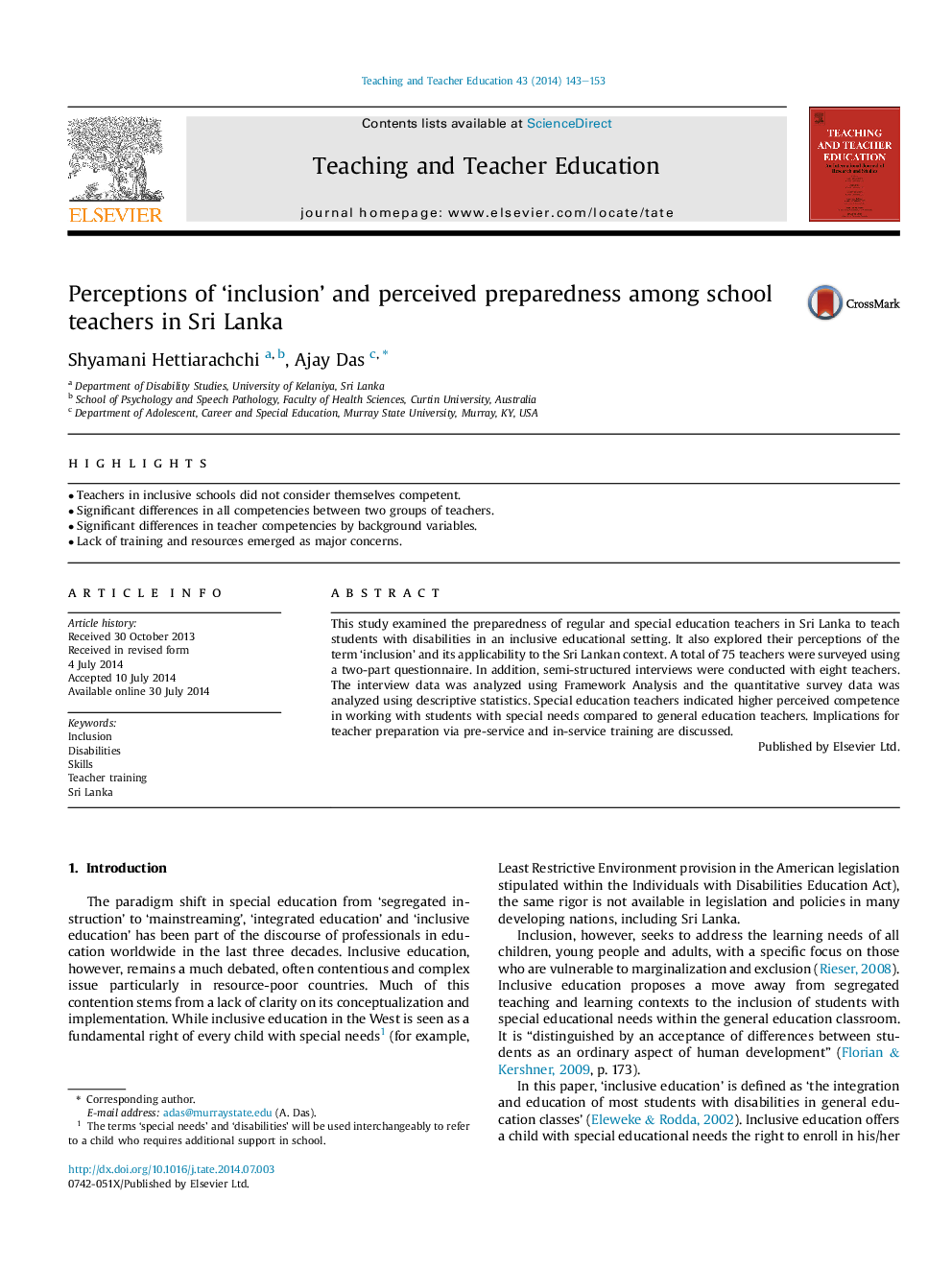| کد مقاله | کد نشریه | سال انتشار | مقاله انگلیسی | نسخه تمام متن |
|---|---|---|---|---|
| 373965 | 622460 | 2014 | 11 صفحه PDF | دانلود رایگان |
• Teachers in inclusive schools did not consider themselves competent.
• Significant differences in all competencies between two groups of teachers.
• Significant differences in teacher competencies by background variables.
• Lack of training and resources emerged as major concerns.
This study examined the preparedness of regular and special education teachers in Sri Lanka to teach students with disabilities in an inclusive educational setting. It also explored their perceptions of the term ‘inclusion’ and its applicability to the Sri Lankan context. A total of 75 teachers were surveyed using a two-part questionnaire. In addition, semi-structured interviews were conducted with eight teachers. The interview data was analyzed using Framework Analysis and the quantitative survey data was analyzed using descriptive statistics. Special education teachers indicated higher perceived competence in working with students with special needs compared to general education teachers. Implications for teacher preparation via pre-service and in-service training are discussed.
Journal: Teaching and Teacher Education - Volume 43, October 2014, Pages 143–153
